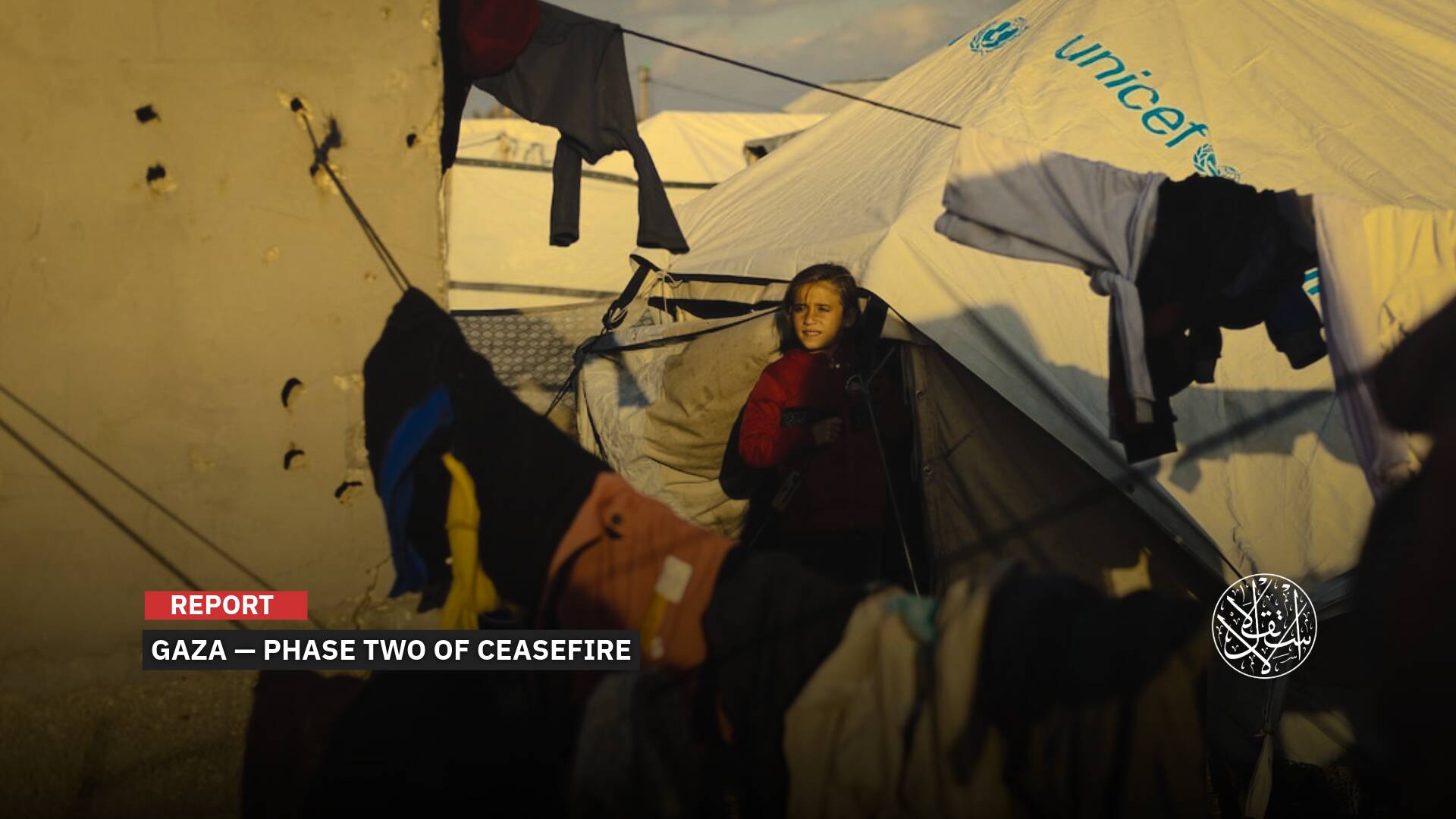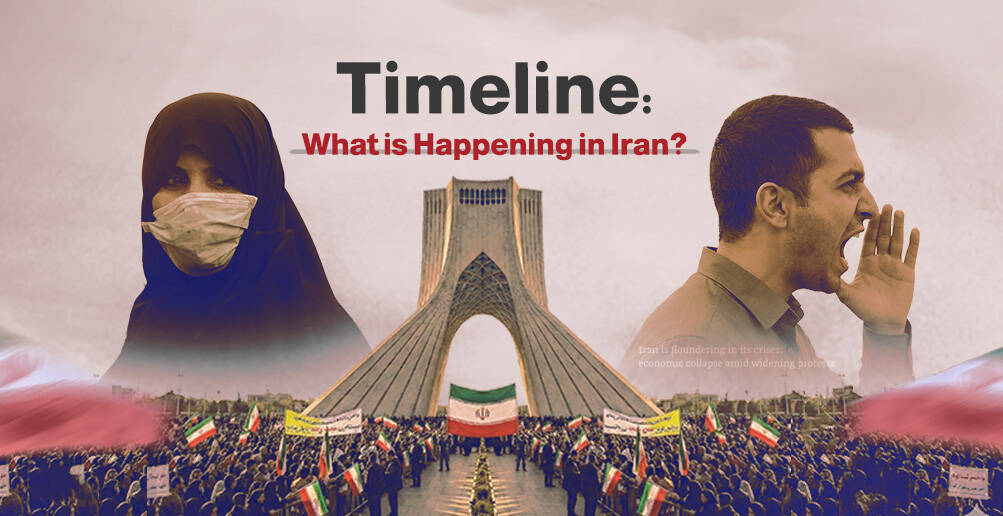Sisi’s Sharm el-Sheikh Climate Conference Reels Amid Human Rights Storm

Weeks before hosting a global climate conference, the international human rights group Human Rights Watch accused Egypt, under General Abdel Fattah al-Sisi's authority, of obstructing the work of local environmental and human rights groups.
In a statement published on September 12, 2022, the UN stressed that this approach undermines Cairo's efforts to make a good international appearance during the International Climate Conference (COP27) hosted by the South Sinai city of Sharm el-Sheikh in November 2022.
"The government of Egypt imposes arbitrary obstacles to funding, research, and registration, weakening local environmental groups, and forcing activists to flee into exile and stay away from important work," said Richard Pearshouse, HRW’s director of environment and human rights.
"These restrictions violate the rights to freedom of assembly and association, and threaten Egypt's ability to meet its obligations related to environmental and climate action," he said, adding that "the environmental research landscape is constrained by the government's heavy guards."
Bad Option
In the fall of 2021, the organization criticized Egypt's hosting of the World Summit, seeing it as a "bad choice" because it is a country ruled by a repressive regime, calling on the countries participating in COP27 to press for the release of thousands of political prisoners whom it estimated at 60,000 Egyptians.
With Egyptian activists facing security crackdowns on the work of human rights and environmental organizations since Sisi's coup in July 2013, Human Rights HRW warned in its latest statement that security services are focusing "now more than ever on environmental civil society."
Thirteen Egyptian activists interviewed by the organization in June 2022 said that since Sisi took office, there has been a sharp decline in the space for independent environmental and climate action, and the use of harassment and intimidation tactics, citing government restrictions and arbitrary retaliatory tactics.
Although aspects of the environment and climate defense are now in line with the Egyptian government's agenda, local human rights and environmental organizations have expressed concerns about participating in COP27 and that the regime will retaliate against them after the summit.
Activists told Human Rights Watch, "When the conference is over, they may start researching and figuring out who is doing what? And who got the money from where?"
"The government of Egypt adopts a radical discourse when it comes to our criticism of the North countries and their contribution to climate change and carbon emissions because this intersects with their interests such as the need for more funds," one activist told the international organization.
These concerns come as dozens of independent civil society organizations are prosecuted for receiving foreign funds, and their staff has been targeted by travel bans, confiscation of funds, and asset freezes.

Mohamed Awad, head of the Egyptian Green Party, commented that Human Rights Watch "not only embarrassed the Egyptian government with this announcement at this time but also confirms that the organization and all popular international organizations have run out of patience with the performance of the government of Egypt."
"The government should have expected this reaction, and I even expect other steps that may be painful, and there are things that I don't have to talk about now, but I'm sure I'll have a say in them," he told Al-Estiklal.
With the Egyptian government's great interest in this conference and monitoring all the state's possibilities for its success, Awad stressed that "HRW’s statement is very important given its timing and link to the climate conference."
He added that "the statement has very negative repercussions, especially since the focus of international popular delegations at the Sharm el-Sheikh conference will be on human rights in Egypt," believing that "there are other steps in this file, which will continue as the conference approaches."
The "negative impact" of the organization's criticism, according to the Egyptian environmental expert, is that "in accordance with the framework of the United Nations multilateral agreement, the climate conference is linked to financial assistance and grants for projects to combat climate change."
"According to the provisions of the Convention, this is linked to the file of human rights and democratic practice in each country," he said.
Expected Gains
Sisi participated in the United Nations Climate Change Conference (COP26) in Glasgow, Scotland, in early November 2021, while hoping that Cairo's hosting of the climate summit will be an opportunity to whitewash his appalling human rights record before the world.
COP27 is set to bring together some 190 countries that are parties to the United Nations Convention on Climate Change (UNFCCC), with thousands of experts, journalists, representatives of companies, and non-governmental groups.
But Human Rights Watch's criticism comes at a time when Cairo is racing against time to prepare for the conference and is allocating extensive budgets to transform Sharm el-Sheikh into the conference's headquarters for global delegations to a green city that relies on zero-emission fuels and other environmental safety factors.
Egypt's last statement in this context was by Prime Minister Mostafa Madbouly on September 11, 2022, announcing that all possibilities were provided for the success of the conference, in what appeared to be relentless attempts by Cairo to look good, to obtain some financial, economic and political gains.
Awad noted that "the government of Egypt treated the conference as if it’s its owner and not a United Nations conference when it is only a host country.
"It has made an effort to prepare Sharm el-Sheikh for the conference as if it were a tourist festival, although this does not take into account official and popular delegations," he said.
Egypt's expected gains revolve around European funding for the implementation of Cairo's environmental plans.
Gain the trust of international lending institutions and obtain the IMF loan, which Egypt has been negotiating since March 2022, to save it from the economic stalemate.
It also restored Egypt's international and regional position by hosting an international conference of this magnitude.
This is what the Sisi government is counting on, especially with a widespread human rights refusal to host the conference, which activists saw as a reward for the Sisi regime despite the crimes of repression against Egyptians and its crimes against the environment.
Awad said that "some see the conference as an opportunity to revive the Egyptian economy, which is in a state of extreme fatigue, and they also see it as an opportunity for political floating," adding: "I hope so, but: [You don’t get what you wish for…]."
The Egyptian politician believes that "the government of Egypt has no choice but to respond immediately to all the demands of all popular and international organizations before things worsen further and further so that they can enjoy their economic hopes from this conference."
On the potential political gain, he said that "this is the subject of great doubts, and is further complicated by the current political situation, which must be understood so that it does not stop at the limits of the conclusion of some memorandums of understanding and the tragedy of the economic conference is repeated."
On September 11, the European Bank for Reconstruction and Development (EBRD) announced the allocation of $300 million to help Egypt shut down gas power plants starting in 2023.
With $1 billion in funding, to cover one-tenth of Egypt's needs to produce 10 gigawatts of wind power by 2028.
In early September, Egypt announced a series of memorandums of understanding for the green hydrogen and ammonia projects.

Green Removal
Environmental and human rights groups accuse Egypt in return for its efforts to make the conference a success by committing an extensive campaign to cut down trees on the streets of Cairo and Alexandria and to get rid of green gardens to build bridges, roads, and axes for cars.
Minister of Environment Yasmine Fouad confirmed that Cairo, one of the world's most polluted cities, due to its polluting air costs the state 47 billion pounds a year, equivalent to 1.4 percent of Egypt's GDP, according to the World Bank.
Activists also accuse the Egyptian regime of spending lavishly on the conference's preparations as usual in lavish spending on projects such as the administrative capital and the new flags, at a time when about 60 percent of Egyptians live below the global poverty line, according to a World Bank statement in May 2019.
The Sisi regime has imposed many restrictions on the work of activists and the funding of non-governmental, human rights, and environmental organizations.
In 2013, Law No. 107 was promulgated, regulating the right to public meetings, marches, and peaceful protests, and granting security forces the freedom to prevent protests and use excessive force against peaceful protesters.
A 2014 amendment to the Penal Code and the old and new NGO Law also carried an arbitrary restriction on grants and donations from foreign and national sources, observers said.
In addition, the 2017 NGO Law, updated in 2019, added further restrictions.
In addition, since 2017, the Egyptian authorities have blocked some 700 websites, news and human rights websites, with arrests and systematic prosecutions of journalists and activists.
In February 2020, seven UN experts who reviewed these laws said they "view the totality of these legislative legislations and their interrelated and cumulative effects as having collective and devastating effects on the promotion and protection of human rights."
On July 12, 2022, 36 organizations called on the Egyptian authorities to loosen their grip on civic space and to support freedom of expression, association, and peaceful assembly to enable a successful climate summit in Egypt.












